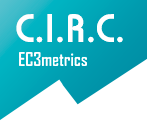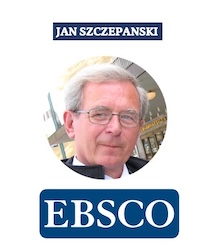Submissions
Submission Preparation Checklist
As part of the submission process, authors are required to check off their submission's compliance with all of the following items, and submissions may be returned to authors that do not adhere to these guidelines.- The contribution is original and unpublished, and is not being evaluated for publication by another journal.
- The submission file is in Microsoft Word, OpenOffice or RTF format.
- The text is in 1.5 space; uses a 12-point font; uses italics instead of underlining (except URL addresses); figures and tables are inserted in the text, not at the end of the document in the form of attachments.
- The paper follows the style standards and bibliographic described in Guidelines for Authors, on the "Submission"
- The journal's system contains all information about the manuscript (Title, keywords, language, and abstract, in Portuguese, English, and Spanish).
- The text of the article contains a minimum of 26,400 characters and a maximum of 66,000 characters (without spaces).
- The text is de-identified, that is, the author's identity is not explicitly or implicitly cited.
- The Orcid ID was provided in the registration of the author(s).
Artigos
Política padrão de seção
Modernisms in Brazil throughout the 20th Century
The organizers intend the studies collected in this dossier to question "modernism" as its concept was fixed to refer to the period inaugurated by the Semana de Arte Moderna in 1922. A mere point of departure, the event turned into a referential of conformity aggregating forces which had been building up within intellectual circles since the late 1910's. We do not intend to limit the interpretation of modernism to the movement initiated by the paulistas, who supposedly reduced the artistic field in other Brazilian states to mere receptacles of their ideas. It should be emphasized that this hegemonical narrative was initiated by the intellectual elites during the decades following the event. It is therefore fundamental to acknowledge that the products of the so-called regional artistical forms of expression had already incorporated new topics, languages and aesthetics. Differences and divergences within the modernisms expressed themselves through more or less blatant ruptures and continuities – such as disagreements about the construction of the Brazilian nationalities and the possibility of "swallowing" foreign influences or of proclaiming a non-colonial "fast". Taking as a basis these initial challenges, the dossier aims at opening a space for studies oriented toward the diversity of modernisms in Brazil, relative to various areas of knowledge (social sciences, humanities, visual arts, architecture, literature, drama, music, etc.), and/or to different historically invisibilized perspectives and subjectivities (women, black people, LGBTQIAPN+, Quilombola, peasants, indigenous and others claiming to have a voice).
Imagining the Nation: Brazilian Intellectuals in the Long 19th Century
The choice of Isabel Lustosa for the title of her work dedicated to the trajectory of Hipólito José da Costa was quite apt. By referring to her subject as "the journalist who imagined Brazil," the author not only presented us with an impeccable narrative about one of the most influential newspaper writers of his time but also prompted us to contemplate how the Luso-Brazilian intelligentsia imagined what Brazil would become.
The imaginative dimension is in frank dialogue with Benedict Anderson's studies on imagined political communities, intrinsically linked to the notion of belonging. After all, Hipólito José da Costa spent more than half of his life outside Brazil, which did not prevent him from writing about and for Brazil. Like the journalist exiled in London, other voices and perspectives also contributed to identifying what Cecília H. de Salles Oliveira called the "tangibility of the nation" – a "Brazilian" identity that was slowly being forged as diverse, although originating from the Portuguese.
This dossier aims to bring together studies on different voices of "Brazilian" intelligentsia that, especially in the 19th century, sought to imagine Brazil. These voices, which we understand as plural, include women, Afro-Brazilians, indigenous people, and other historically silenced groups who, despite their political and social marginalization, also thought and forged future alternatives for Brazil.
We are, therefore, looking for research that explores debates on national identity, political philosophy, literature, science, and more. We consider both convergences and divergences of thought, highlighting how this diverse intelligentsia helped establish, in a complex and multifaceted manner, Brazilian identity. Therefore, this dossier invites researchers from History, Literature, Social and Political Sciences, as well as other related fields of knowledge, to contribute their analyses on the 19th-century intelligentsia that imagined Brazil.
Organizers: Dr. Arthur Ferreira Reis (UFES) and Dr. Cecilia Siqueira Cordeiro (UnB).
Deadline for article submissions: April 30, 2024.
Modern slavery and the Luso-Brazilian institutions between the 17th and 19th centuries
Após algum tempo de arrebatadas discussões sobre ser ou não a violência o elemento estrutural da dominação escravista, um grupo de historiadores, composto por brasileiros e por alguns brasilianistas, dedicados à compreensão de diferentes facetas do cotidiano de africanos e descendentes que viveram como escravos na antiga colônia lusa da América e depois no Império do Brasil, empreendeu numerosos estudos marcados por abordagens que privilegiaram análises bastante definidas espaço-temporalmente, nas quais o escravo acabou por assumir, via de regra, um papel preponderante sobre a própria escravidão. Salvo algumas exceções, a documentação cartorial, policial e judiciária relativa aos cativos foi frequentada mais como um meio de se chegar ao dia a dia dos envolvidos do que propriamente para o estudo do aparato estatal que lhe conferia forma e legalidade.
Mais recentemente, no entanto, ao longo das últimas duas décadas, mesmo se considerarmos que os estudos localizados ainda tenham alcançado uma expressão considerável, assistiu-se no Brasil, no Caribe e nos Estados Unidos a um renovado interesse pelas macroabordagens, tanto na publicação de novas pesquisas, quanto na produção de traduções de obras consagradas – que colocaram à disposição de um número mais amplo de interessados questões que ficaram, por algum tempo, relegadas a segundo plano, esquecidas sob a pecha de grandes generalizações de caráter ideológico, economicista ou culturalista. Aos poucos, a história da escravidão moderna vem sendo, no Brasil e no exterior, novamente interpretada à luz de histórias conectadas no espaço americano, na perspectiva atlântica, sob o prisma do império português e no âmbito da própria cultura ocidental.
Colocando-se a um só tempo como tributário e crítico desses amplos movimentos historiográficos, este dossiê temático pretende abrir espaço a um conjunto novo e vibrante de estudos que vem articulando o problema da escravidão de africanos e descendentes à construção ou ao funcionamento de instituições que compuseram a Monarquia lusa e o Estado do Império do Brasil entre os séculos XVII e XIX. Assim, serão bem-vindas investigações em torno dos impactos da escravidão sobre instituições ligadas aos governos monárquicos e ao próprio Estado, tais como: os Tribunais Seculares e Episcopais, o Santo Ofício, os Conselhos Administrativos e Consultivos, as Assembleias, as Câmaras Administrativas e Parlamentares, a Polícia, o Júri, dentre outros órgãos que, neste amplo lapso temporal, contribuíram por meio de suas práticas e de seus membros para o estabelecimento do longo debate sobre o binômio Escravidão e Estado no mundo luso-brasileiro. Interessam, ainda, estudos que explorem as prescrições e os atributos conferidos à escravidão ou às condutas cotidianas de senhores, escravos e libertos por instituições nesses séculos. Acreditamos que jogar luz sobre tais abordagens possa trazer novos aportes e discussões instigantes para o debate sobre um tema que, no último meio século, primou pela polêmica e por constantes renovações interpretativas, com impactos sobre a escrita da história no Brasil e no exterior.
Organizadores: Dr. Ricardo Alexandre Ferreira (UNESP), Drª. Monique Marques Nogueira Lima (UNESP) e Drª. Larissa Biato de Azevedo (UNESP)
Prazo de recebimento de artigos: 31 de julho de 2024.
Copyright Notice
The authors grant the journal the right to publish under the Creative Commons CC BY-SA 4.0 DEED.
Privacy Statement
The names and email addresses entered in this journal site will be used exclusively for the stated purposes of this journal and will not be made available for any other purpose or to any other party.






















